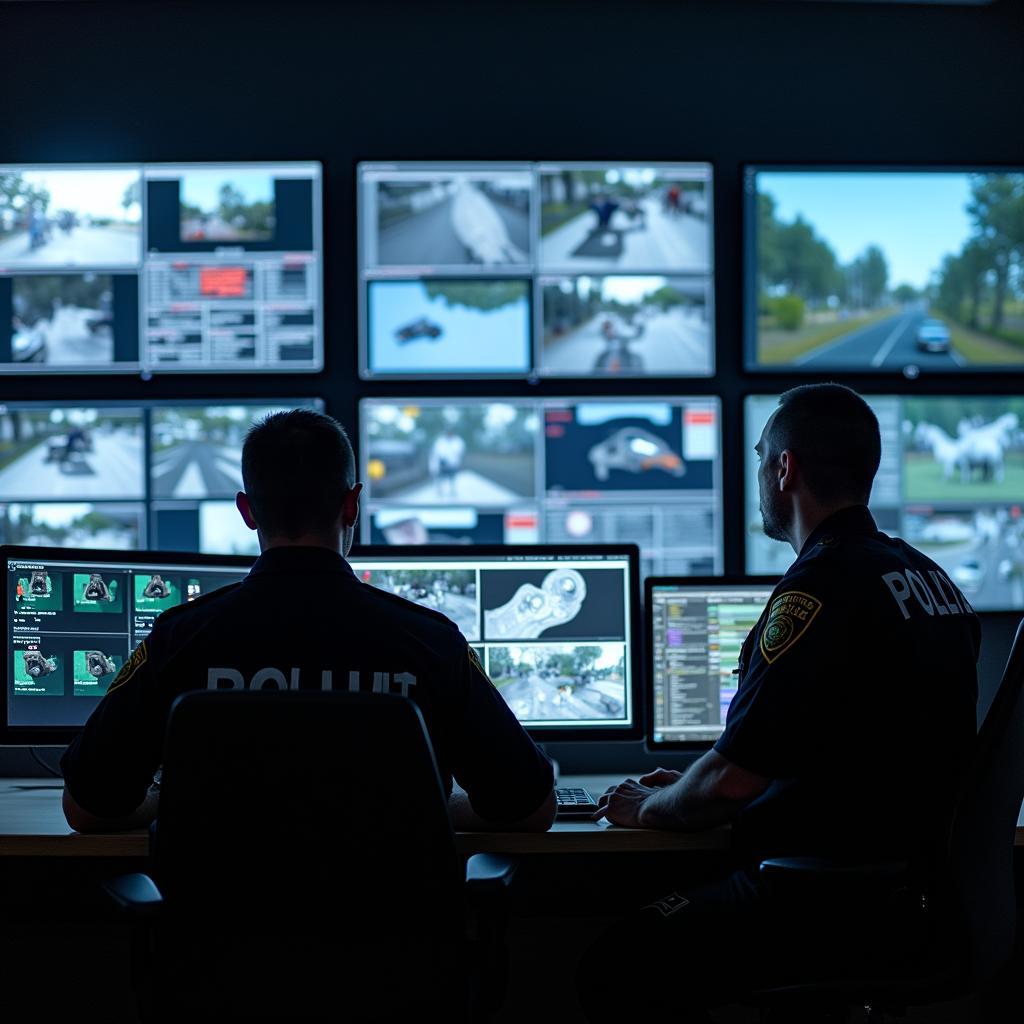Technology and crime detection have become increasingly intertwined topics in IELTS Writing Task 2. This theme has appeared frequently in recent years, particularly in questions about surveillance, cybersecurity, and law enforcement. Let’s examine one of the most common question types on this subject that has appeared in actual IELTS tests.

Question Analysis
Some people believe that advanced technology makes it easier for police to detect and prevent crime. Others argue that technology creates new opportunities for criminals. Discuss both views and give your opinion.
This question requires candidates to:
- Discuss both positive and negative aspects of technology in crime detection
- Present a balanced argument
- Provide relevant examples
- State and support a clear position
Sample Essay 1 (Band 8.5)
As technology development continues to advance, its impact on crime detection and prevention has become a subject of intense debate. While some argue that technological tools enhance law enforcement capabilities, others contend that they simultaneously create new criminal opportunities. In my view, despite some challenges, technology’s benefits for crime detection significantly outweigh its potential drawbacks.
Modern technology has revolutionized crime detection in several ways. Advanced surveillance systems, DNA analysis, and digital forensics have dramatically improved investigators’ ability to solve cases. For instance, CCTV cameras with facial recognition capabilities can identify suspects within minutes, while traditional methods might take weeks or months. Similarly, sophisticated data analytics tools help police predict potential crime hotspots and allocate resources more effectively.
However, critics argue that technological advancement creates more vulnerability in our systems. Cybercriminals can exploit security weaknesses in digital infrastructure, leading to data breaches and financial fraud. Moreover, criminals may use encryption technology to hide their activities, making detection more challenging for law enforcement agencies.
Nevertheless, I believe the advantages of technology in crime detection are more significant. Law enforcement agencies constantly adapt and develop countermeasures against new forms of crime. The implementation of anti-money laundering regulations in banking systems, for example, has made it increasingly difficult for criminals to conceal illegal transactions. Furthermore, international cooperation in cybercrime investigation has become more effective through shared technological resources.
In conclusion, while technology can create new criminal opportunities, its role in enhancing crime detection and prevention capabilities is invaluable. The key lies in continuous adaptation and proper implementation of technological tools by law enforcement agencies.
Sample Essay 2 (Band 6.5)
Technology has changed how police catch criminals today. Some people think it helps police work better, but others worry it makes new problems. I will discuss both sides and give my opinion.
On the positive side, police can use many new tools to catch criminals. Cameras on streets help them see crimes happening and catch bad people quickly. Police also use computers to check fingerprints and DNA faster than before. These things make it harder for criminals to hide.
However, some people think technology creates new problems. Criminals use computers to steal money from banks and people’s personal information. They can also use the internet to hide their activities. This makes it harder for police to find them sometimes.
I think technology helps police more than it helps criminals. Even though there are new types of crime, police have better ways to catch criminals now. They can work with other countries to catch international criminals and use special computer programs to find evidence.
In conclusion, while technology can help criminals in some ways, it gives police more advantages in fighting crime. The police should keep learning about new technology to catch criminals better.
Key Vocabulary
- Digital forensics (n) /ˈdɪdʒɪtl fəˈrensɪks/ – The investigation of digital devices
- Surveillance (n) /səˈveɪləns/ – Close observation of a person or group
- Cybercrime (n) /ˈsaɪbəkraɪm/ – Criminal activities carried out by means of computers
- Countermeasures (n) /ˈkaʊntəmeʒəz/ – Actions taken to prevent something undesirable
- Encryption (n) /ɪnˈkrɪpʃən/ – The process of converting information into code
High-scoring Sentence Patterns
- “While X, Y” structure: “While technology can create new criminal opportunities, its role in enhancing crime detection is invaluable.”
- Complex causation: “The implementation of strict regulations has made it increasingly difficult for criminals to operate.”
- Balanced argument: “Although critics argue X, evidence suggests Y.”
We encourage readers to practice writing their own essays on this topic and share them in the comments for feedback and discussion.